Syria's Assad says Trump's 'animal' slur represents himself
The Syrian president has said that Donald Trump's "animal Assad" slur is representation of the US president himself.
"It represents him, and I think there is a well-known principle, that what you say is what you are," says Syrian President Bashar al-Assad during an interview with RT to be aired on Thursday.
Assad was referring to an April tweet by US President Donald in which he blamed Russian President Vladimir Putin and Iran for the alleged chemical attack near the capital Damascus.
"President Putin, Russia and Iran are responsible for backing Animal Assad. Big price to pay," Trump tweeted.
During the interview Assad was asked if he had a nickname for the US president, to which he responded:
"This is not my language, so, I cannot use similar language. This is his language. It represents him, and I think there is a very known principle, that what you say is what you are. So, he wanted to represent what he is, and that's normal. Anyway, it didn't move anything, and this kind of language shouldn't move anything for anyone," he said.
"The only thing that moves you is what people that you trust, people who are level-headed, people who are thoughtful, people who are moral, ethical, that's what should move anything inside you, whether positive or negative. Somebody like Trump will move nothing for me," he added.
The alleged chemical attack on April 7 in the militant-held town of Douma in the Eastern Ghouta region left dozens dead and drew international condemnation from various countries and and international bodies.
Read More:
-
Syria denies using chemical weapons in Douma, Eastern Ghouta
-
Russia warns of militants chemical attack in Syria's Eastern Ghouta
-
US training Syria militants for false flag chemical attacks: Russian cmdr.
In a statement, Damascus strongly rejected the allegation of using chemical munitions and said that the so-called Jaish al-Islam Takfiri terrorist group was repeating the accusations “in order to accuse the Syrian Arab army, in a blatant attempt to hinder the army’s advance.”
The governments of Iran and Russia have also rejected the accusations against the Syrian government.
Syria surrendered its stockpiles of chemical weapons in 2014 to a joint mission led by the US and the Organization for the Prohibition of Chemical Weapons (OPCW), which oversaw the destruction of the weaponry.
It has also consistently denied using chemical weapons over the course of the foreign-backed militancy, which gripped the country in 2011.
Western governments and their allies, however, have never stopped pointing the finger at Damascus whenever an apparent chemical attack takes place.
In April, a suspected sarin gas attack hit the town of Khan Shaykhun in the northwestern Syrian province of Idlib, taking at least 80 lives. Accusing Damascus, the US then launched several dozen Tomahawk cruise missiles at a Syrian air base, taking the lives of about 20 people including both Syrian soldiers and civilians.
The US and its allies have been bombarding what they call Daesh positions inside Syria since September 2014 without any authorization from the Damascus government or a UN mandate.
The strikes have on many occasions resulted in civilian casualties and failed to fulfill their declared aim of countering terrorism.
IRGC: 16th wave of retaliation hit heart of occupied territories; enemy casualties stand at 680
We avenge the innocent until our last breath: Iran's parl. speaker
170 students, teachers martyred in ‘deliberate’ strikes on Iranian schools: Minister
Iran’s air defense systems down six advanced Hermes drones
US defenses overwhelmed by Iran’s drone and missile barrages: WSJ
IRGC says second US THAAD anti-missile unit destroyed
CNN journalists abducted by Israel while reporting on damage from Iranian strikes
Iran denies attacks on Oman as it warns of US-Israeli ‘false-flag’ ops



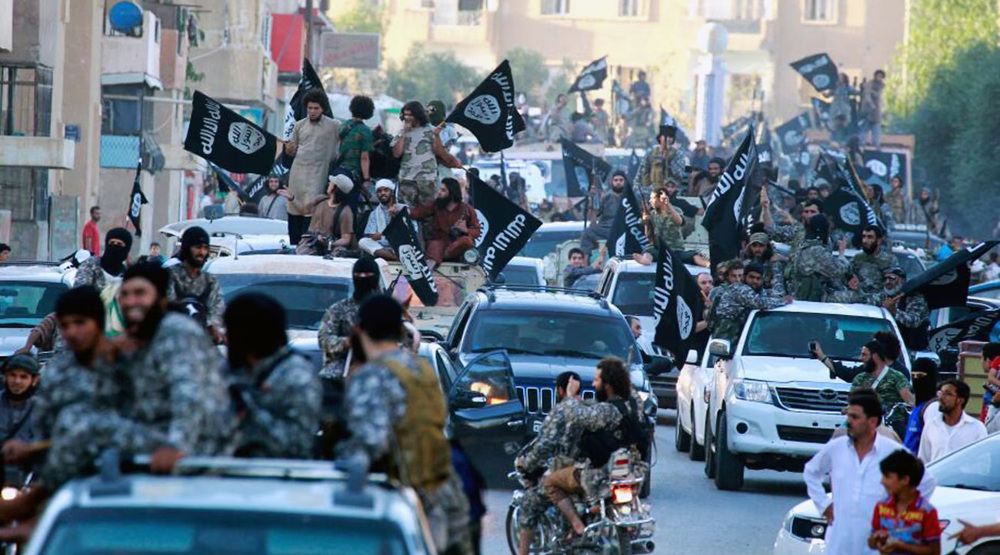
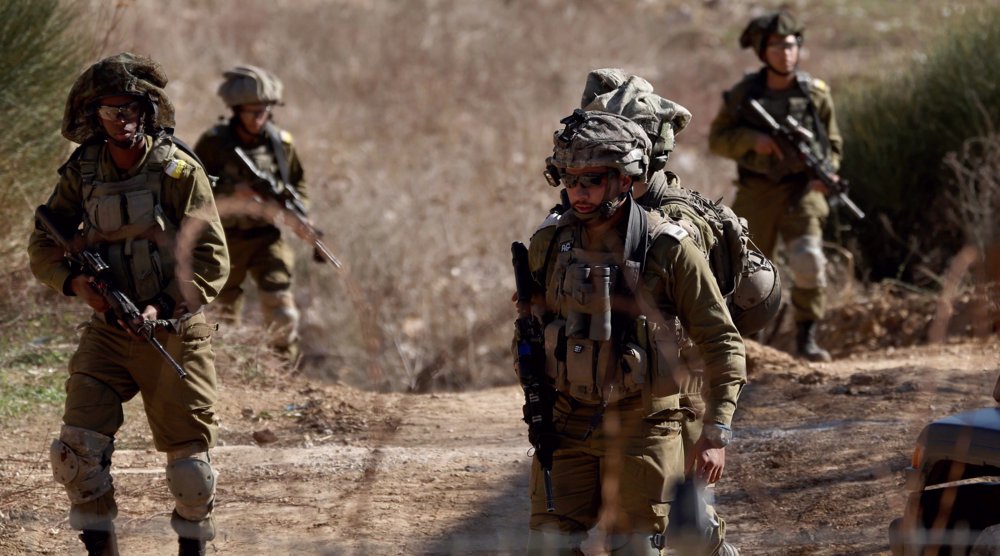
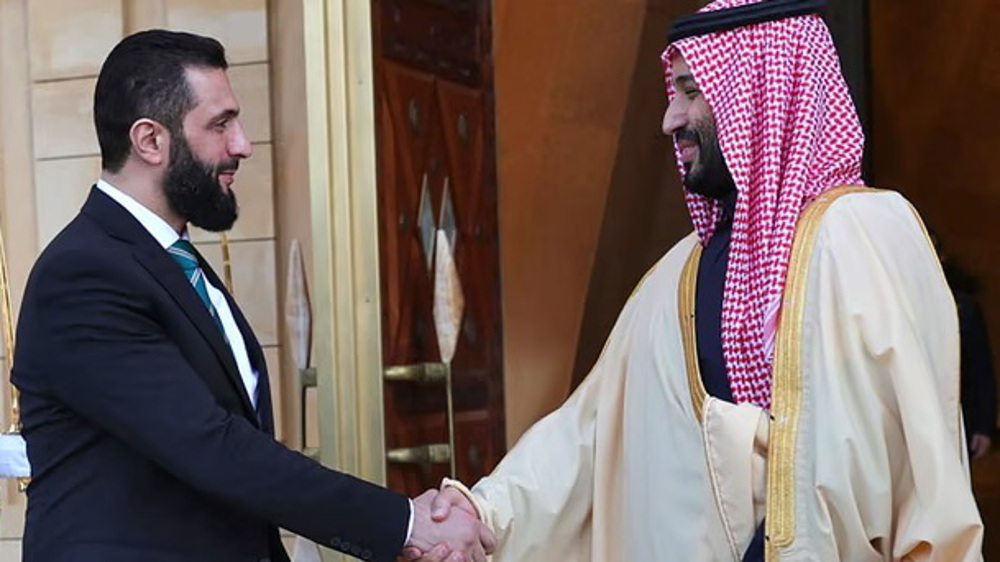




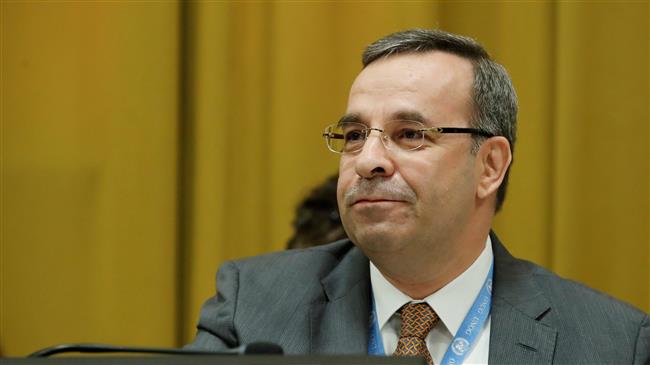
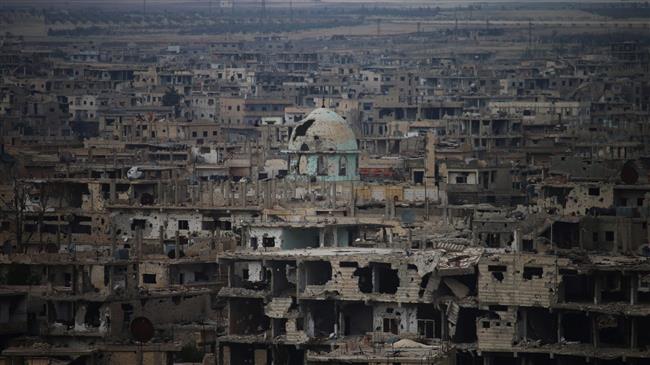

 This makes it easy to access the Press TV website
This makes it easy to access the Press TV website